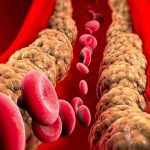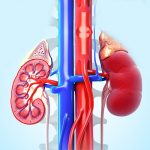The Sunshine Vitamin
It is a normal routine to slather on sunscreen to avoid sunburn and tan while heading out in the sun. On the other side, people who live in the cold regions prefer to holiday in tropical countries to spend time in the sun. While it is true that over-exposure to direct sunlight can damage the skin, it is equally true that avoiding sunlight can affect our overall health, especially of the bones.
The sun is more than just a ball of fire at the heart of the solar system. Its benefits are innumerable, one of which is its supply of Vitamin-D. The sun’s Ultraviolet-B rays are absorbed by the skin, interact with a protein called 7-dehydrocholesterol (7-DHC) and produce Vitamin D. This explains why Vitamin-D is called the “Sunshine Vitamin”.
Vitamin-D is also called calciferol. There are two types of Vitamin-D:
- Vitamin-D2 also called ergocalciferol.
- Vitamin-D3 also called cholecalciferol.
Importance of Vitamin D
Vitamin-D is crucial in the absorption of calcium and phosphorus – the minerals responsible for bone structure and strength. Vitamin-D is also important for healthy teeth and muscles. It fortifies the immune system, boosts brain function and stabilizes the mood.
The recommended daily allowance (RDA) of Vitamin-D in international units is:
- 400 IU for infants 0-1 years of age.
- 400 – 800 IU for children below 12.
- 800 – 2000 IU over the age of 12
Causes of Vitamin-D deficiency and need for supplements
- Living in regions where there is insufficient sunlight.
- People with dark skin tone, as melanin can block the sun’s UV rays from accessing the cells that manufacture Vitamin-D.
- Use of sunscreen and clothing that prevent exposure to sunlight.
- Atmospheric pollution.
- Lack of diet containing oily fish and dairy products.
- People who are on regular medication of statins.
- Lifestyle changes with limited time spent outdoors.
Symptoms of Vitamin-D deficiency
Regular pain in the bones and muscles, cramps and fatigue, bouts of depression and low-morale are the common symptoms. Many people also suffer hair-loss, slow healing of wounds, frequent illness and susceptibility to infections.
Diagnosis of Vitamin-D deficiency
People with the above symptoms are recommended further diagnosis through a blood-test called 25-hydroxy Vitamin-D test.
Supplementing Vitamin-D through food
- Fish like salmon, sardines, herring, tuna and cod liver oil.
- Dairy products like milk and cheese.
- Eggs, especially the yoke.
- Mushrooms, exposed to UV light
Overdose of Vitamin-D
It is possible to overdose on Vitamin-D especially when supplementing without medical supervision. The condition is called Vitamin-D Toxicity and displays symptoms like nausea, vomiting, loss of appetite and diarrhoea or constipation. In case of very high doses for prolonged durations, serious medical conditions like kidney stone, kidney failure, mental instability and high blood pressure can occur.
Vitamin-D may not be recommended for people with:
- High calcium levels.
- High phosphate levels.
- Kidney failure.
- Kidney stones.
Absorption of Vitamin-D from the sun is at its best during the noon time, though some studies suggest the early morning rays. For those who have the privilege of living in places where sunlight is a routine, several minutes of exposure a day should be adequate to soak up the sunshine vitamin.





